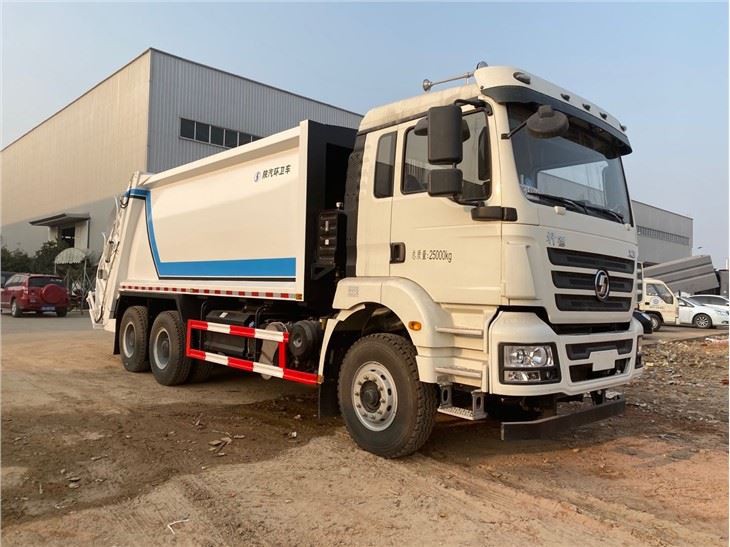Introduction
A 10 yd dump truck, recognized for its versatility and strength, plays a vital role in construction, landscaping, and numerous other industries. This article delves into the specifics of a 10 yd dump truck, exploring its specifications, practical applications, comparison with other dump truck sizes, maintenance tips, and much more. By the end of this comprehensive guide, you will have a solid understanding of what a 10 yd dump truck can offer and how to choose the right one for your needs.
What is a 10 yd Dump Truck?
A 10 yd dump truck is a type of heavy-duty vehicle designed to transport bulk materials. The “yd” refers to cubic yards, indicating the maximum amount of material the truck can carry—10 cubic yards. These trucks are typically used in construction sites, landscaping projects, and municipal applications.
Key Specifications
- Capacity: 10 cubic yards
- Weight Limit: Approximately 15,000 to 24,000 lbs gross vehicle weight (GVW)
- Engine Size: Often between 4.5L and 6.6L
- Transmission Type: Manual or automatic
- Dimensions: Vary by manufacturer; on average, a length of 20-26 ft, a width of 8 ft.
Types of 10 yd Dump Trucks
Standard Dump Trucks
Standard dump trucks comprise a truck chassis with a mounted dump body. They are designed for general dirt and material hauling.
Heavy-Duty Dump Trucks
Heavy-duty 10 yd dump trucks are built for more intense applications, featuring enhanced suspension systems, frames, and larger engines.
Applications of 10 yd Dump Trucks
Construction Sites
10 yd dump trucks are indispensable in construction, often used to move soil, gravel, rocks, and debris. Their size allows for efficient loads while still being nimble enough for tight spaces.
Landscaping Projects
Landscape designers frequently rely on 10 yd dump trucks to deliver soil, mulch, stones, and other materials necessary for planting and design.
Municipal Services
Local municipalities utilize these trucks for park maintenance, road construction, and other public service projects that require heavy lifting and transport capabilities.
Mining and Aggregate Industries
In the mining sector, 10 yd dump trucks transport minerals and aggregates, ensuring timely delivery to different processing plants or stockpiles.
Advantages of Using a 10 yd Dump Truck
Optimal Capacity
With a 10 cubic yard capacity, these trucks strike a balance between size and maneuverability, making them suitable for various tasks without being overly cumbersome.
Efficiency in Material Handling
They enhance productivity, allowing operators to manage larger amounts of material in fewer trips than smaller trucks.
Cost-Effectiveness
While the upfront cost might be higher, the fuel efficiency and productivity savings make them economically viable for many projects.
Choosing the Right 10 yd Dump Truck
Assess Your Needs
Evaluate the materials you will be transporting and the typical distances involved. This evaluation influences your decision regarding the type and capabilities of the dump truck.
Consider the Terrain
For rugged or uneven terrain, ensure the truck has appropriate features like all-wheel drive or reinforced suspensions for better handling.
Budget Constraints
Be clear about your budget, considering not only the upfront cost of the truck but also potential maintenance and fuel expenses.
Maintenance Tips for 10 yd Dump Trucks
Regular Inspections
Conduct routine inspections of hydraulic systems, brakes, and tires to prevent operational failures.
Keep It Clean
Regularly wash the truck body to protect it from rust and corrosion due to materials like salt and moisture.
Follow Manufacturer Guidelines
Adhere to the maintenance schedule provided by the manufacturer for oil changes, filter replacements, and other essential services.
Practical Examples of Use
Case Study: Building a Residential Home
A construction company utilized a 10 yd dump truck to transport materials like concrete and wood, completing the foundation in less time than using smaller trucks.
Case Study: Community Park Revitalization
A local municipality used a 10 yd dump truck to deliver topsoil, mulch, and shrubs for a park revitalization project, finishing with minimal delays and within budget.
Case Study: Road Repairs
During a road repair project, contractors relied on the dump truck to haul gravel and asphalt quickly, ensuring the repairs were completed ahead of schedule.
Cost of a 10 yd Dump Truck
The cost of a new 10 yd dump truck can vary widely but generally ranges from $25,000 to $60,000, depending on the brand and configuration. Used trucks can be more economical, typically ranging from $10,000 to $30,000.
Ongoing Costs
Factor in fuel, insurance, and maintenance when considering ownership costs. Fuel efficiency is crucial, with estimates ranging from 6 to 12 mpg depending on the model and load.
Frequently Asked Questions (FAQs)
1. How much can a 10 yd dump truck carry?
A 10 yd dump truck can carry approximately 10 cubic yards of material, which is equivalent to about 15 tons, depending on the material density.
2. What materials are best suited for a 10 yd dump truck?
These trucks are ideal for transporting materials such as dirt, gravel, sand, asphalt, and debris.
3. What is the average lifespan of a 10 yd dump truck?
Depending on usage and maintenance, a 10 yd dump truck can have a lifespan of 10 to 15 years.
4. Can I rent a 10 yd dump truck?
Yes, many equipment rental companies offer 10 yd dump trucks for rent, which is a cost-effective solution for short-term projects.
5. Are there weight limits for roads when using a 10 yd dump truck?
Yes, local and state regulations often set weight limits for vehicles on specific roads. Always check the requirements in your area to avoid fines.
6. What are the diesel vs. gasoline options for 10 yd dump trucks?
Most 10 yd dump trucks are diesel-powered, offering better torque and fuel efficiency, while gasoline options may be available but are less common.





